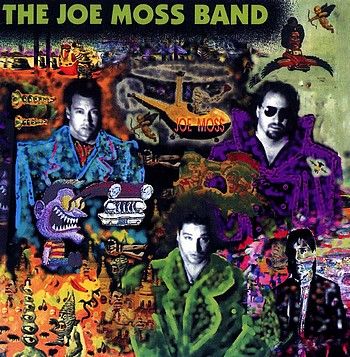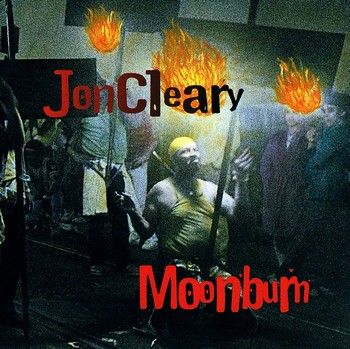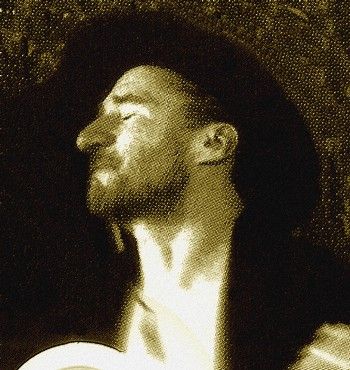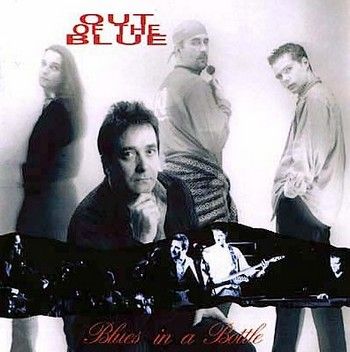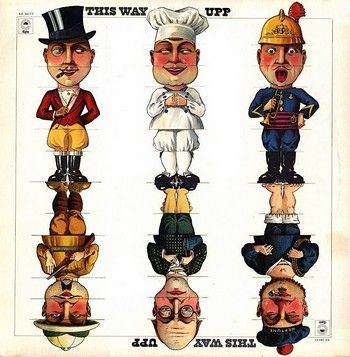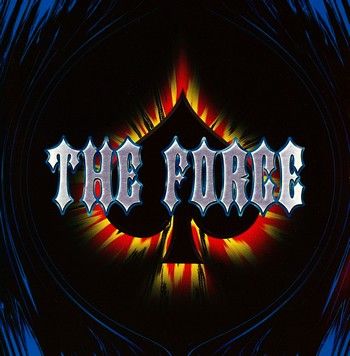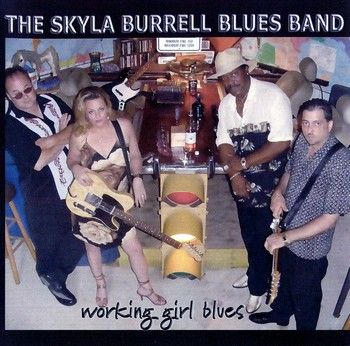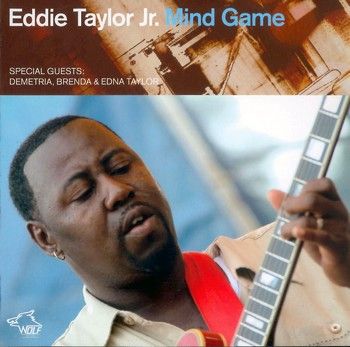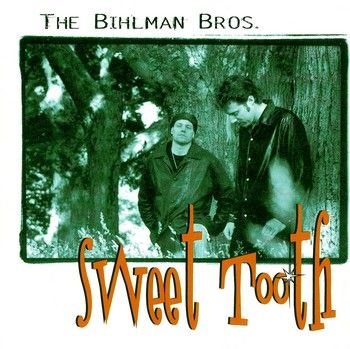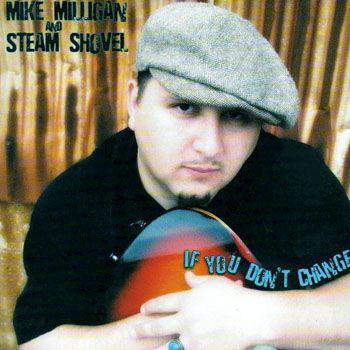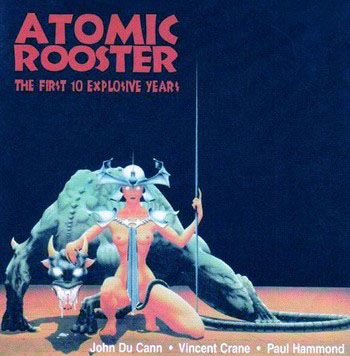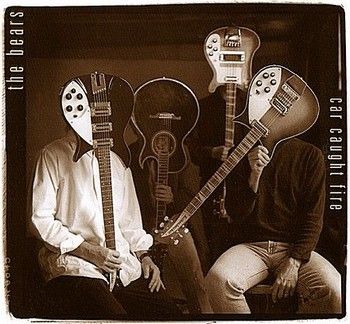 The Bears - Car Caught Fire - 2001 - Self Released
The Bears - Car Caught Fire - 2001 - Self Released
Beneath all the quirkiness, Adrian Belew is quite a pop tunesmith, especially evident by his work with the Bears. While fans figured they'd heard the last of them in the late '80s, the band unexpectedly got back together shortly after the dawn of the 21st century -- issuing their first studio release in 13 years, "Car Caught Fire." And the group picks up exactly where they left off -- putting their modern spin on a post-Beatles power pop style. Don't get me wrong, Belew's eccentricity still shines through on the material (as well as his guitar expertise), especially "Caveman," but if it's expertly crafted, melodic pop songs you're after, Car Caught Fire has its fair share, especially "Life in a Nutshell" and "What's the Good of Knowing." It may have taken an extraordinarily long time for the Bears to issue their third proper release, but Car Caught Fire was well-worth the wait. © Greg Prato © 2011 Rovi Corporation. All Rights Reserved http://www.allmusic.com/album/car-caught-fire-r574434
Most reviewers call The Bears music, "Power Pop". However, Adrian Belew's guitar work is brilliant and on the progressive rock side. Don't get this band confused with ordinary commercial pop music. cdbaby.com makes a great comment about the band's sound, calling the band's "Live" album, "Retro power pop; ridiculously catchy, pathetically groovy and irreverantly eclectic from blues, pop and rock genres. see if you can take it". That's a great description of the band's sound. Wikipedia notes that "Although Adrian Belew has played with some of rock's biggest names over the years (Frank Zappa, David Bowie, the Talking Heads, King Crimson, etc.), he remains one of the most underrated and woefully overlooked guitarists of recent times. Like all great guitarists, Belew has his own recognizable style/sound (one that admittedly tends to be quirky and off-the-wall at times), and is an incredibly versatile player, as he's always found a way to make his signature style fit into a wide variety of musical genres: hard rock, funk, new wave, experimental, Beatlesque pop, and more". All those styles are incorporated in this album which is
VHR by A.O.O.F.C. Sound lacks clarity at times, and volume needs to be "upped", but nevertheless a great, original sounding album from this hugely talented band. Check out "The Bears Live" album @
BEARS/LIVE and try and listen to the band's "Eureka!" album
TRACKS / COMPOSERS
1 Life, in a Nutshell - Belew 3:42
2 Under the Volcano - Fetters 4:11
3 When She Moves - Nyswonger 3:48
4 Mr. Bonaparte - Belew 3:54
5 What's the Good of Knowing? - Arduser 2:53
6 Dave - Fetters 4:51
7 Caveman - Nyswonger 3:35
8 Waiting Room - Arduser, Belew, Fetters, Nyswonger 4:20
9 117 Valley Drive - Belew 3:47
10 Safe in Hell - Arduser 3:51
11 Success - Fetters 3:42
12 Sooner or Later - Nyswonger 2:59
13 As You Are - Fetters 4:53
MUSICIANS
Adrian Belew, Rob Fetters - Guitar, Vocals
Robert Fripp - Guitar [Guest]
Chris Arduser - Guitar (Acoustic), Mandolin, Drums, Vocals
Bob Nyswonger - Bass, Guitar (Acoustic), Keyboards
BIO (WIKI)
The Bears is an American band formed in 1985 in Cincinnati, Ohio that continues to create new music today. Its sound could be categorized as power pop, but draws from a diverse palette of influences, and features the distinctive avant-garde guitar playing of Adrian Belew, the band's most prominent member. In addition to guitarist, vocalist and producer Belew, the Bears consists of guitarist/vocalist Rob Fetters, drummer/vocalist Chris Arduser, and bassist Bob Nyswonger. Fetters, Nyswonger and Arduser are all former members of the Raisins, a Cincinnati-based band that was a local success in the early 1980s. In 1983, the Raisins, who then consisted of Fetters, Nyswonger, Rick Neiheisel (keyboards, vocals) and Rick "Bam" Powell (drums, vocals), recorded an eponymous album, produced by Adrian Belew. Adrian's friendship with the Raisins dated back to the mid-'70s, when he crossed paths with them as a member of a band named Sweetheart before being discovered by Frank Zappa. The Raisins album, which was released on the small Cincinnati-based label Strugglebaby, produced a local #1 hit, "Fear is Never Boring" (later re-recorded for the Bears' first album), on popular Cincinnati radio stations. Clive Davis, then head of Arista Records, considered signing the band, but the Raisins didn't break through nationally. In 1985, the Raisins broke up. Rob and Bob joined forces with Adrian (who had recently completed a stint with King Crimson) to form a new band, the Bears. Chris Arduser, who had left the Raisins years before, was recruited to play drums after Larrie Londin became unavailable for touring. The Bears had some initial trouble getting signed to a major record label, but eventually hooked up with Primitive Man Recording Company (P.M.R.C.), a short-lived subsidiary of I.R.S. Records. The band released two albums, The Bears and Rise And Shine, and embarked on a nearly continuous 3-year period of touring, playing smaller venues across the U.S., with some overseas expeditions. After weathering disappointing album sales, despite warm audience and critical response and a bit of MTV exposure, the Bears broke up after P.M.R.C. closed and Adrian's 1989 solo album Mr. Music Head spawned an MTV hit with "Oh Daddy." Fetters, Nyswonger and Arduser continued playing together after the Bears disbanded, first re-appropriating the moniker the Raisins, then changing their name to psychodots upon the 1991 release of an eponymous album, released on Strugglebaby. Two more album releases followed in the next few years, but the band was unable to secure a national recording contract, and went on hiatus in 1996. During this time, Belew released solo albums and rejoined King Crimson. Belew's Inner Revolution album from 1992 featured Arduser on drums, and Fetters played in Belew's backing band for the tour supporting its release. On the tour for Belew's 1994 album Here, psychodots served dual roles as the opening band as well as the Belew's backing band, and they played a few Bears songs despite it not being billed as a reunion of the group. Fetters released a solo CD in 1998 on which Belew cowrote two songs, and he, Nyswonger and Arduser all performed on various cuts. Arduser's band the Graveblankets, which also featured Nyswonger, released a series of albums through the late '90s. Arduser and Nyswonger also played live with other local Cincinnati bands. In 1997, the Bears began recording together again in occasional weekend sessions at Belew's home studio. These sessions finally resulted in a new album, Car Caught Fire, in 2001. The CD was released independently by the band, and also by the Pony Canyon label in Japan. The band toured small clubs in early and late 2002, mainly in the Midwest and South. The Bears Live CD was released in between the two tours. In 2004, a concert DVD featuring a show recorded in 2002 at the Club Cafe in Pittsburgh was released. A documentary filmed during several shows of the early 2002 tour, titled The Bears: Out Of Hibernation and directed by D.P. Carlson, was given limited screenings in Chicago and Cincinnati in 2005, but has not been widely released. Following the 2002 Bears tours, Adrian Belew re-focused on his solo career, releasing the albums Side One, Side Two and Side Three in 2005 and 2006 and touring as a "power trio." The other three members regrouped as psychodots in 2005 to record and release the first psychodots studio album in a decade, Terminal Blvd.. Arduser, Fetters and Nyswonger all released solo albums around this time as well. Starting in 2003, the Bears regrouped for more weekend sessions to record a new album, which was released independently on April 3, 2007 and titled Eureka!, followed by a quick eight-date tour. The band's first two albums remained out of print until becoming available as digital downloads in February 2009. There was also a UK based band called The Bears who released one single on Waldos Records in 1978. The two bands are not related
MORE
The '80s saw the emergence of several bands that gave a modern spin to the Beatles' more melodic moments -- namely Utopia, XTC, and the Bears. The latter group is best known for its inclusion of journeyman guitarist Adrian Belew, and despite issuing several fine albums over the years (on a very sporadic basis), the band remains relatively unknown outside of a small but devoted following. The roots of the Bears can be traced back to a Cincinnati-based band called the Raisins, which included guitarist/vocalist Rob Fetters, bassist Bob Nyswonger, and drummer Chris Arduser. At a show in Nashville in 1976, the group met Belew (who was playing in another band that same evening, Sweetheart), hit it off, and soon after, decided to someday make music together. Both parties remained in contact, but the proposed band had to take a backseat to Belew's burgeoning career, which at the time included stays with Frank Zappa, David Bowie, the Talking Heads, the Tom Tom Club, and King Crimson (in addition to launching his own solo career). Belew did find the time, however, to produce a Raisins demo in 1978, and even recorded a cover of "Oh Pretty Woman" with them. By 1983, Belew and the Raisins finally found the time to work together, as the guitarist produced a self-titled album for them. Although pleased with the results, it was agreed among all that Belew needed to be more involved with the band -- resulting in Belew signing on with the group full-time, and the band being renamed the Bears. Playing their first live shows together in 1985, the Bears issued a debut album, 1987's The Bears, as well as a sophomore outing, 1988's Rise and Shine; the latter became the quartet's highest charting album (peaking at number 159 on the Billboard charts). However, with their record label folding and Belew about to rekindle his solo career, the Bears called it quits soon after. Fetters, Nyswonger, and Arduser opted to remain together, forming a new band called the Psychodots and issuing a self-titled debut album in 1991. A year after issuing their sophomore outing, 1993's On the Grid, the Psychodots joined Belew on tour (who was supporting his then-current solo release, Here). While it was a double bill, the Psychodots backed Belew during his set, and would even jam on a few Bears oldies. Fans figured a Bears reunion would be up next, but this proved not to be the case, as the Psychodots continued to release further albums, while Belew continued on as solo artist and as a member of King Crimson. A Bears reunion did eventually occur, and the quartet issued their first new studio album in 13 years, 2001's Car Caught Fire, and launched a supporting tour, which led to the group's very first live album, The Bears Live, a year later. © Greg Prato © 2011 Rovi Corporation. All Rights Reserved http://www.allmusic.com/artist/the-bears-p3641/biography
ABOUT ADRIAN BELEW
Although Adrian Belew has played with some of rock's biggest names over the years (Frank Zappa, David Bowie, the Talking Heads, King Crimson, etc.), he remains one of the most underrated and woefully overlooked guitarists of recent times. Like all great guitarists, Belew has his own recognizable style/sound (one that admittedly tends to be quirky and off-the-wall at times), and is an incredibly versatile player, as he's always found a way to make his signature style fit into a wide variety of musical genres: hard rock, funk, new wave, experimental, Beatlesque pop, and more. Born Robert Steven Belew on December 23, 1949, in Covington, KY, Belew's first instrument of interest was the drums, as he soon kept the backbeat in his high school's marching band. But not long after his discovery of the Beatles, Belew picked up the guitar, teaching himself how to play and to write original songs. Spending the remainder of the '60s and early '70s honing his skills, Belew opted to change his first name to Adrian in 1975 (for the simple reason that it was a name he'd always admired), as he joined a Nashville, TN-based cover band, Sweetheart, the same year. The group performed in '40s-era suits and became a popular local attraction -- resulting in Frank Zappa checking out a show in 1977. With an opening for a guitarist in his touring band, Zappa invited Belew on the spot to come and audition for his band, which Belew eventually landed. It was during Zappa's lengthy 1978 U.S. tour (documented in the concert movie Baby Snakes) that David Bowie came to see a performance, which resulted in Belew being invited to join Bowie's touring band when the Zappa tour wrapped up. Once more, Belew accepted, touring the world alongside Bowie and appearing on his 1978 live recording, Stage, and 1979 studio effort, Lodger. Once more, just as Belew's latest gig was about to wind down, he received an offer he couldn't refuse from another artist. Through guitarist Robert Fripp, Belew met renowned producer Brian Eno, who in turn introduced the guitarist to the Talking Heads, who were in the middle of recording their classic 1980 release Remain in Light. Belew was invited to lay down guitar for the songs, which led to his participation on the album's supporting tour (which a portion of the live compilation The Name of This Band Is Talking Heads showcased). Belew also contributed to the Talking Heads' offshoot project, the Tom Tom Club, appearing on their self-titled 1981 debut album, as well as their hit single "Genius of Love" (although he wasn't given a songwriting credit originally, it became known years later that Belew helped co-pen the tune with the others). It was during The Tom Tom Club recording sessions (in the Bahamas) that Belew also began work on his first solo album, issued in 1982 as Lone Rhino. Predictably, it wasn't long before Belew was offered his next gig, this time with a newly reconstructed King Crimson. Belew, who handled lead vocal duties in addition to guitar, was joined by Crimson vets Robert Fripp (guitar) and Bill Bruford (drums), in addition to session ace Tony Levin (bass). With the group eschewing their previous prog rock leanings in favor of a more "modern" sound (akin to the Talking Heads), the '80s version of Crimson issued three outstanding albums: 1981's Discipline, 1982's Beat, and 1984's Three of a Perfect Pair (during which time Belew found the time to issue a second solo release, 1983's Twang Bar King). With Crimson on hiatus once more by the mid-'80s, Belew focused on further solo work (1986's Desire Caught by the Tail, 1989's Mr. Music Head), session work (most notably, Paul Simon's mega-hit Graceland), and also served as a member/producer of a new group, the Bears (1987's The Bears and 1988's Rise and Shine). The '90s continued to see Belew keep a busy schedule, as he hooked up once more with his old pal David Bowie, who named the guitarist musical director for his massive 1990 Sound and Vision tour. Also during the decade, Belew issued several more solo releases (including 1990's Young Lions, 1992's Inner Revolution, 1994's Here, and 1996's Op Zop Too Wah, the latter two of which Belew played all the instruments), in addition to guesting on other artist's recordings (Nine Inch Nails' The Downward Spiral and The Fragile), and producing others (Jars of Clay). After a near-ten-year hiatus, King Crimson reunited, resulting in the 1995 album THRAK and supporting tour. Belew has shown little signs of slowing down in the 21st century, as he continued to tour and record with Crimson (2000's ConstruKction of Light, 2003's The Power to Believe), issued a third recording with the Bears (2001's Car Caught Fire), and is hard at work on compiling an extensive box set of rarities from throughout his career, to be titled Dust. 2004 saw rehearsals with the newest King Crimson lineup, additional recordings by the Bears and the completion of 3 (!) solo albums to be released in 2005. The first and third of these (Side One and Side Three) have Primus bassist Les Claypool and Tool drummer Danny Carey lending a hand while Side Two is more of a completely solo affair, with just a couple guest spots. © Greg Prato © 2011 Rovi Corporation. All Rights Reserved. http://www.allmusic.com/artist/adrian-belew-p3654/biography
